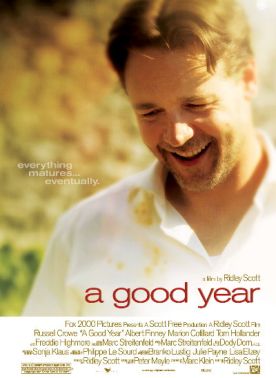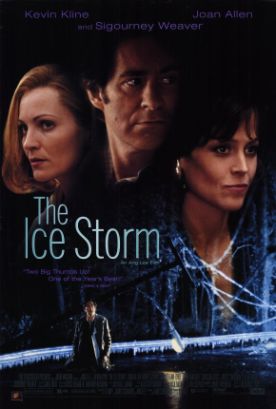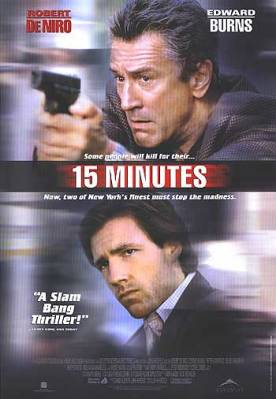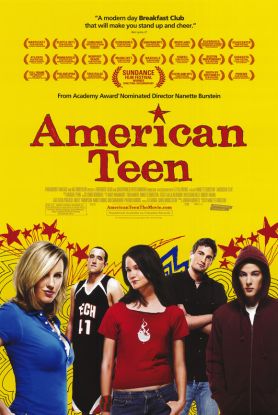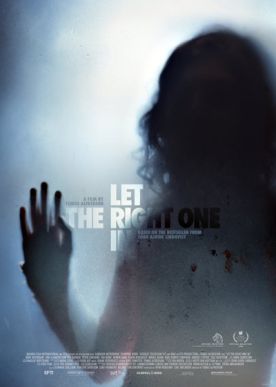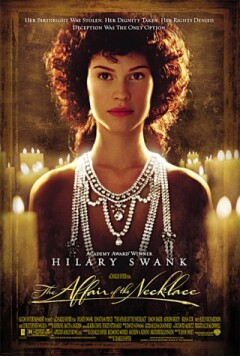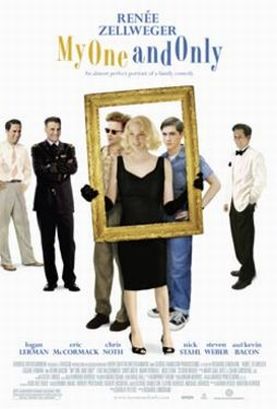Good Year, A
Peter Mayle was one of the first and has long been one of the most successful of what we might call lifestyle entrepreneurs. Buy the books, buy the recipes, buy the tour guide and, now, buy the movie — all of them founded on the same basic perception that Provence is a sort of paradise on earth. I myself am quite fond of Provence and all things Provençal, but there’s a limit to how far its rural and authentic character and the picturesque charm of its people and places can compensate for the other things we expect to get from movies and don’t get in Ridley Scott’s adaptation of Mr Mayle’s A Good Year.
Right from its cutesie beginning “A Few Vintages Ago” to its utterly predictable ending, the movie relies on stereotypes. British bankers, brokers and bond-traders are ruthless workaholics, French peasants are cunning, earthy and dishonest but lovable. Above all the pace of life deep in the French countryside is leisurely, idyllic and worry-free. And yet, knowing this, our hero has somehow to account for his preferring the life of a ruthless workaholic. “I can’t for the life of me think why I stopped coming down here,” says Max Skinner (Russell Crowe), the high-powered London banker who grew up in the Provençal chateau of his eccentric Uncle Henry (Albert Finney) but who hasn’t been back there in many years. Well, if he can’t think why, how are we supposed to? I’m afraid we’re driven back on the answer that he had to stop coming down there because if he hadn’t there would have been no story.
Likewise, when his London assistant, Gemma (Archie Panjabi) asks him why he stopped speaking to Uncle Henry, he replies that it was “probably something to do with my becoming an a******.” Well, yes, but why did he become an a****** in the first place? Generally speaking, he seems quite pleased with himself about having done so and, accordingly, made a big success as a buccaneering trader in the London financial markets. It might have made an interesting story to explain how it is that darling little Freddie Highmore (Finding Neverland, Charlie and the Chocolate Factory), who plays Max as a boy in the frequent flashbacks, makes the long journey from cherub to a******.
Nor is it at all clear to me that he ceases to be one when he rediscovers the charms of Provence after he inherits the chateau. On the contrary, in fact. Uncle Henry has died intestate, which means that Max as his only known relative gets the property. But he finds that he has an American cousin (Abbie Cornish), who is Uncle Henry’s illegitimate daughter and who, under French law, should have inherited the chateau in his stead. He conceals the proof of their relationship and forges a letter from Uncle Henry saying that he wants them both to have it. This seems to be regarded by the movie-makers as a generous gesture on his part, since he might have kept it all for himself, rather than an obvious swindle of his cousin out of half of her inheritance.
The film is supposed to have come about when Mr Scott, who has a home in Provence, saw an article in The Times of London about a British businessman, Hugh Ryman, who moved to France and enjoyed a certain success making a high-priced “garage” wine and showed it to his neighbor, Mr Mayle. Mr Mayle wrote the novel and then Mr Scott made the film. But the winemaking here has been turned into an unnecessary and largely incomprehensible sub-plot. Uncle Henry’s vigneron, Francis Duflot (Didier Bourdon) appears to be sabotaging the chateau’s own wine while making his expensive garage wine on the sly. But the ruthless moneyman seems strangely unperturbed about this.
Instead, he’s off in search of the good life, particularly as it is embodied for him in local beauty Fanny Chenal (Marion Cotillard), a waitress from the village who is said to have suffered a bad breakup of her romance with a soccer player. “Since then it’s rumored that she will let no man near her heart.” This is convenient, for it makes her a feisty little hellcat when Max unwittingly runs her off the road on her bicycle. He has a job to win her over when, as we know he will, he falls for her, and he only does so when he shows her that he can wait tables with the best of them. He also enthusiastically seconds the defiant motto with which she sends on their way American and British tourists looking for a taste of home in her restaurant: “McDonald’s: Avignon! Fish’n’chips: Marseilles!”
Well, the character of the place must be preserved, I suppose, even though it appears to have little to do with Max’s decision to throw up his lonely but very well-paid life in London to move to the chateau. Here’s how the alternatives are put to him by his boss, Sir Nigel (Kenneth Cranham) — whose practice of keeping his priceless works of art locked up in a vault is what makes Max discontented with his life for the first time: “What’s it to be? The money or your life?” By this he appears to mean, “Do you want to work all the hours that God sends and get rich or just get rich?” Gee, now there’s a hard one! Life in Provence could be a good deal less charming and authentic, the chateau a lot less beautiful and peaceful and Fanny’s charms more modest than they are. The choice would still be a no-brainer, even for an a****** like Max.
But Mr Mayle has presumably grown so used to offering us the wish-fulfilling and money-spinning contrast between the gloom and misery of England and the sunshine and happiness of Provence that by now he’s just going through the motions. It’s sad to see talented people like Ridley Scott and Russell Crowe doing the same.
Discover more from James Bowman
Subscribe to get the latest posts to your email.

